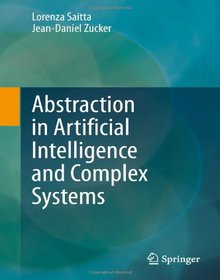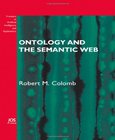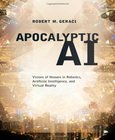Abstraction in Artificial Intelligence and Complex Systems
Book Description:
Abstraction is a fundamental mechanism underlying both human and artificial perception, representation of knowledge, reasoning and learning. This mechanism plays a crucial role in many disciplines, notably Computer Programming, Natural and Artificial Vision, Complex Systems, Artificial Intelligence and Machine Learning, Art, and Cognitive Sciences. This book first provides the reader with an overview of the notions of abstraction proposed in various disciplines by comparing both commonalities and differences. After discussing the characterizing properties of abstraction, a formal model, theKRAmodel, is presented to capture them. This model makes the notion of abstraction easily applicable by means of the introduction of a set of abstraction operators and abstraction patterns, reusable across different domains and applications. It is the impact of abstraction in Artificial Intelligence, Complex Systems and Machine Learning which creates the core of the book. A general framework, based on theKRAmodel, is presented, and its pragmatic power is illustrated with three case studies: Model-based diagnosis, Cartographic Generalization, and learning Hierarchical Hidden Markov Models.
Download Link:
Related Books:
Ontology and the Semantic Web
Volume 156 Frontiers in Artificial Intelligence and Applications
In order for information systems supporting two different organizations to interoperate, there must be an agreement as to what the words mean. There are many such agreements in place, supporting information systems interoperation in many different application areas. Most of these agreements have been created as part of diverse systems development processes, but since the advent of the Semantic Web in the late 1990s, they have been studied as a kind of software artifact in their own right, called an ontology, or description of a shared world. This book brings together developments from philosophy, artificial intelligence and information systems to formulate a collection of functional requirements for ontology development. Once the functional requireme...
The Essential Turing
Seminal Writings in Computing, Logic, Philosophy, Artificial Intelligence, and Artificial Life plus The Secrets of Enigma
Alan Turing was one of the most influential thinkers of the 20th century. In 1935, aged 22, he developed the mathematical theory upon which all subsequent stored-program digital computers are modeled. At the outbreak of hostilities with Germany in September 1939, he joined the Goverment Codebreaking team at Bletchley Park, Buckinghamshire and played a crucial role in deciphering Engima, the code used by the German armed forces to protect their radio communications. Turing's work on the version of Enigma used by the German navy was vital to the battle for supremacy in the North Atlantic. He also contributed to the attack on the cyphers known as 'Fish' which were used by the German High Command for the encryption of signals during the latter part of th...
Apocalyptic AI
Visions of Heaven in Robotics, Artificial Intelligence, and Virtual Reality
Apocalyptic AI, the hope that we might one day upload our minds into machines or cyberspace and live forever, is a surprisingly wide-spread and influential idea, affecting everything from the world view of online gamers to government research funding and philosophical thought. In Apocalyptic AI, Robert Geraci offers the first serious account of this "cyber-theology" and the people who promote it. Drawing on interviews with roboticists and AI researchers and with devotees of the online game Second Life, among others, Geraci illuminates the ideas of such advocates of Apocalyptic AI as Hans Moravec and Ray Kurzweil. He reveals that the rhetoric of Apocalyptic AI is strikingly similar to that of the apocalyptic traditions of Judaism and Christi...
2007 - 2021 © eBooks-IT.org




